Politics & Government
Lehi City Election 2021: Candidates profiled – Series one
Published
4 years agoon
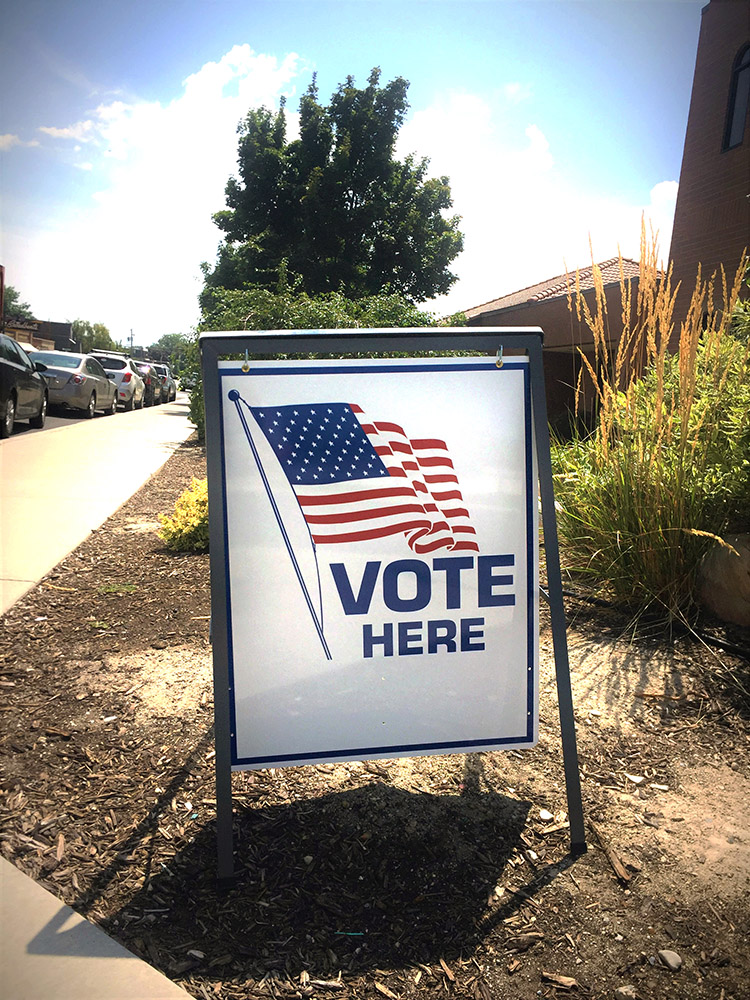
Ballots will be arriving in Lehi voters’ mailboxes in just two weeks. Voters will decide two City Council seats, the Mayor, and a City PARC tax question.
The field of nine council candidates will be chosen by ranked choice, a first in Lehi history. The Lehi City Council approved ranked choice voting in April, eliminating a primary election.
The following is the first in a series of two articles sharing information about city council candidates and both mayoral candidates. This article features four candidates, the next article will feature the remaining five.
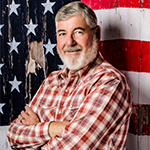
Mark Johnson, Mayor (incumbent)
Lehi Free Press: Why are you running for a second term?
I want our community to be prepared for the future. Social, economic, environmental, health care, education, and infrastructure factors will define our well-being as we move forward. I believe it is critically important to understand the demographics of what lies ahead and create a sustainable lifestyle for a successful community. I know how to work towards that goal.
LFP: Do you support ranked choice voting and no Primary?
In 2019, two Utah cities conducted their elections using RCV. A voter poll conducted after those elections showed over 80% of the voters found the process easy to use and wanted to use it again in the future. This year, 23 cities in Utah have opted to use RCV. It is particularly important in a multi-seat race where we have multiple candidates. It ensures that the winner receives at least 50% of favorable votes.
There are excellent arguments both for and against conducting a primary election when RCV is applied. I continue to evaluate both sides of that argument.
LFP: Do you support the PARC tax?
Yes, I do. We have fallen behind a reasonable national standard for green space. Through some creative land acquisition deals, we now have significant land available to develop parks, but now we need a financing mechanism in order to construct facilities. The PARC tax dedicates money where we need it.
LFP: What are some ideas you have to handle the growth Lehi is facing?
Actually, a significant amount of planning, evaluating and engineering have occurred the last 3-1/2 years to better manage growth. Development has been halted in some areas until it can be demonstrated that necessary infrastructure is in process to sustain the area. The council has reduced the overall allowable population in the new, soon to be adopted General Plan by almost 50%. There has been much work done to plan and create an improved transportation system within our boundaries.
There is an enormous focus in preparing for our needs. As an example, we have in engineering or in construction, facilities that will store an additional 5.6 million gallons of culinary and over 27 million gallons of irrigation water for our systems. We have also now preserved over 230 acres for regional park space.
Growth is real and it is everywhere along the Wasatch Front. It would be dangerous to simply turn a blind eye to it. Projections show the population of Utah County increasing to 1.6 million by 2065. We must plan wisely for this now.
LFP: If elected, what is the top priority you would like to work on during the first year?
1. Start the process of building needed park and arts facilities.
2. Start the Installation of fiber [fiber-optic infrastructure] in Lehi so everyone has an opportunity to work and school from home when necessary. Fiber is an important component of solving our transportation issues.
3. Finish the Master Transportation Plan to correct existing problems and prepare for future growth in North County.

Jesse Riddle, Mayor candidate
Lehi Free Press: Why are you running?
Lehi needs leadership. We have traffic delays, water issues, infrastructure concerns –all pressing issues–while we continue to develop. With my 25+ years of business experience, I bring to the table a fresh view on how to work through these issues and an expertise in solving problems. Albert Einstein said, “We cannot solve our problems with the same thinking we used when we created them.”
LFP: Do you support RCV and no Primary?
No. When the City Council voted to throw out 170 years of our republican tradition of “one-person one-vote.” they eliminated the primary. The citizens of Lehi would, by now, know the candidates and the issues. We would have made a choice as to the four candidates of the nine running for City Council. The conservative Heritage Foundation called Ranked-Choice Voting a “manipulation” of our voting rights and a “power” grab. I call it the Incumbent Reelection Act.
LFP: Do you support the PARC tax?
When politicians run out of ideas, they tax. The last and worst idea is to tax citizens. Nonetheless, I respect the right of the voting public to levy yet another tax on themselves if they so wish.
LFP: What are some ideas you have to handle the growth Lehi is facing?
When solving problems, all of the stakeholders need to be in the same room so that we can get answers. For example, currently we are punishing residents with water restrictions while we continue to build for non-residents. Let’s find out how much water we have (right now) and then project future needs based on our current population.
Only then can we determine a rate of growth that is sustainable. Let’s repeat this exercise as it related to traffic, roads, etc.
Second, we need to resolve the traffic issues on the east/west corridors before we put more cars on the road. We should know, before we grow, what is sustainable.
Third, we need full transparency among our elected officials. We need to ensure that we have no conflict of interest with the citizens we represent.
LFP: If elected, what is the top priority you would like to work on during the first year?
Infrastructure (water, development & traffic) and transparency.
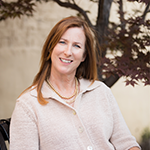
Lori Le, City Council candidate
Lehi Free Press: Why are you running?
I have always had a desire to be involved and serve in my community. Lehi is our first home after getting married and where we are raising our three children. I wanted to give back to this great community by serving. I also have a lot of experience in volunteer leadership positions. I spent the last four and a-half years on the Lehi City Parks Committee which has given me insight as to how the city is run. I am also the current president of the Traverse Mountain Trails Association. I have been able to give back to Lehi city in these roles. Parks, trails and open space are certainly an important contribution to the quality of life for the citizens of Lehi City. However, as a city council member I can contribute much more for the city as a whole.
LFP: Do you support RCV and no Primary?
Yes, I am always open to new ideas on how we can make systems better. RCV has some appealing components to it. RCV may improve voter participation by allowing all candidates for a given office to be voted on at one time. Also, given the often-low midterm election voter turnout, trying a new approach such as RCV for one election season then analyzing the voter data and getting feedback from citizens would help to determine if this is a better way for Lehi going forward. I also believe that having a Primary does not add benefit in the municipal election.Traditionally, a very small percentage of citizens vote in municipal primaries and therefore do not reflect the consensus of the broader community.
LFP: Do you support the PARC tax?
I support the PARC sales tax. Both children and adults need a place to recreate, play, decompress and just have fun. The PARC tax would provide fields for sports such as baseball, softball, soccer, lacrosse, and pickleball. It would also provide for venues that support the arts and culture. The Lehi Arts Center needs an adequate building to put on plays as well as classrooms for visual arts classes. I believe these amenities will continue to benefit and strengthen our Lehi City community.
LFP: What are some ideas you have to handle the growth Lehi is facing?
I would implement two key strategies, prioritizing needs and a phased approach. First, I would review and resolve the most pressing growth need which is traffic management. Then, I would institute a phased approach that staggers development until the supporting infrastructure is in place. I would also work with other state agencies such as UDOT and UTA to come up with alternative routes to destinations in order to relieve traffic pressure on the current roads.
LFP: If elected, what is the top priority you would like to work on during the first year?
My top priority is managing growth in Lehi City by implementing the strategies described in question #4.
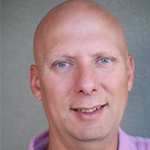
Montane Hamilton, City Council candidate
Lehi Free Press: Why are you running?
I still believe the current council has failed to bring forth new ideas to address the challenges we have faced in dealing with the rapid growth of Lehi. I see the need for council to lead by supporting aggressive changes to our development code. Once developers have been entitled zoning, they should be free to develop by rules that apply to all developers. We are approving plans we don’t like so we must follow up with changes to code to ensure we don’t have to approve the like again.
LFP: Do you support RCV and no Primary?
I did agree with Paul Hancock and Chris Condie when they voted for RCV. In looking at the criticisms I have seen nothing that indicates it really takes anyone’s voting power away or gives anyone else more. The process of dropping candidates to perform subsequent rounds of voting seems complex but in the models I’ve performed, I see winners being chosen that have the most overall support, that’s what we want. I do appreciate every candidate being on the general election ballot and giving all citizens the choice to indicate their preference for all those candidates. I believe citizens are being given plenty of time to choose who they like and plenty of opportunities to learn about the candidates is available. Most if not all candidates have their personal phone number listed and are available for any personal conversation a voter might need. We are all busy and I see a lot of value in ensuring we have a short, focused campaign period.
LFP: Do you support the PARC tax?
The 0.1%, 1 cent for every $10 spent, sales tax, for 10 years is a reasonable increase to help fund amenities that really help a city be more than a concrete jungle but one with programs to unite and open space to gather in.
LFP: What are some ideas you have to handle the growth Lehi is facing?
The growth in Lehi is not surprising given our location between population to the north and south combined with transportation links. Our biggest challenges seem to revolve around traffic and parking. In those areas I am proposing changes to the development code to address the issues. When a developer proposes to develop land they must follow the code, if the code is met then the council has no choice but to approve. Given this and the results we are getting the code clearly does not require high enough standards. The code must change to ensure high density developments have enough parking to realistically keep all the cars on their property, off the street. Lower density housing must have driveways that actually allow owners to park and not have to block the sidewalks. When it comes to traffic, we need to put higher standards in place to ensure new developments make traffic better or at least keep it reasonable and does not create bottlenecks that steal time from residents.
LFP: If elected, what is the top priority you would like to work on during the first year?
My top priority is to work with the Planning Commission, City Staff, the Mayor and Councilors to get support for aggressive Development Code changes to start getting better results with future development as quickly as possible.
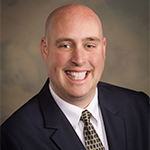
Paul Hancock, City Council (incumbent)
Lehi Free Press: Why are you running?
I’ve always been taught that if you want to make a difference you need to get involved. I saw that firsthandwhen I worked with residents in my community to petition Alpine School District to build Traverse Mountain Elementary as part of the 2006 bond, when they had planned on pushing it to the 2011 bond. I’ve seen that in the eight years I’ve served on the city council as I’ve had the opportunity to work with residents and developers tocome together for better solutions for our community, and I look forward to another four years of serving the citizens of Lehi to continue to make Lehi a great place to live.
LFP: Do you support RCV and no Primary?
Two years ago, I was the only council member to opt into RCV the final time, so we ran a traditional election. After seeing the success that Vineyard and Payson had, being the first cities in Utah to run multi-seat RCV elections, I voted to opt into RCV without a primary this year. I look forward to seeing how the full process plays out, getting feedback from not only the citizens but the candidates as well. If elected again I would use that feedback to help inform my vote two years from now as to whether we stick with RCV with no primary, opt into RCV again but add a primary, or choose to go back to a traditional election.
LFP: Do you support the PARC tax?
Yes. The PARC tax is something that has been used successfully in Salt Lake County (with the ZAP tax), as well as cities here in Utah County such as Orem (CARE tax) and American Fork (PARC tax), to help with the development of parks and arts programs for their residents. I’d encourage voters to go to https://www.afparc.org/ to see what American Fork has been able to do with the funds they’ve collected over the past five plus years. They’ve utilized their funds roughly 60% “parks & recreation” and 40% on “art & cultural events”, which is a similar to how I’d like to see Lehi leverage the funds if it were to pass.
LFP: What are some ideas you have to handle the growth Lehi is facing?
Lehi has experienced unprecedented growth over the past couple of decades and growing from roughly 19,000 residents in the year 2000 to over 75,000 according to the 2020 census. Our implementation of TOD overlay zones has already seen some headway with UTA in regard togetting more mass transit options over the point of the mountain. The TOD zones combined with our soon to be adopted General Land Use plan will allow us as a city to coordinate more closely with landowners and residents on when and where growth will take place.
LFP: If elected, what is the top priority you would like to work on during the first year?
After securing funding to get fiber to every home in Lehi this past year, we need to finish the engineering work so we can start the build out to provide superior internet options to our residents. Once that build out begins, I would turn my focus to the funding of the two regional park properties that the city has.
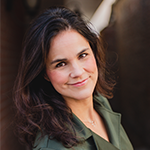
Michelle Miles, City Council candidate
Lehi Free Press: Why are you running?
I love serving and communicating with people. I enjoy studying issues and figuring things out. My ability to think outside the box helps me and those around me generatealternate solutions that can produce fresh insights and objective points of view. My disposition fosters innovation creating increased balance and function to any project, business, or service I commit to joining. I have learned things are done better together, and I have chosen to embrace inclusion rather than an attitude of scarcity. Lehi needs new eyes at the council table to help create a more timeless and balanced outcome for all of us.
LFP: Do you support RCV and no Primary?
I don’t oppose RCV, but the elimination of the primary was a mistake and disadvantaged all running in one form or another.
LFP: Do you support the PARC tax?
I believe parks are not a luxury, but a necessity for our emotional and physical health. I also believe we need to spend within our means. Rather than a tax, I would like to see contribution through community inclusion and the proposed 501(c)(3) accepted by the city. In surrounding cities donations are happening quite regularly. In Spanish Fork, a $3 million donation was given for an All-AbilitiesPark. In Orem, 4100 volunteers came together to construct the All-Together Playground in six days to reduce labor expenses. Real Salt Lake Foundation sponsored Futsal courts at Geneva Park. Doterra donated $50,000 to improve Discovery Park in Pleasant Grove and the citizens, along with Habitat for Humanity, saved the city about $400,000 in labor. The PARC tax is estimated to generate $1.3-$1.5 million per year and can be bonded against $7-$8 million. The bond increases the financial burden and responsibility to the city (us). I believe we can unify to finish our parks (this is how Margaret Wines Park came about along with several other projects in Lehi). We can stay within our means and build our parks better together.
LFP: What are some ideas you have to handle the growth Lehi is facing?
Growth, and citizen inclusion in that growth, are what make for a healthy and thriving community. I would like to see Lehi accept and enhance what is. Most areas of Lehi are not designed to function as a walkable community. The city is voting on a new General Plan in October, where a good portion of our incoming future residential growth can be high-density housing. The proposed new general plan is zoned to have 500 additional residential units in a several block section in and around Main Street. his area lacks the roads to support an increase in density. I would like to see the council remove the proposed added density in this area and keep continuing to approve variances upon request. When it comes to Transit-Oriented Developments, the city should not reduce the parking requirement with the assumption the area will one day be fully walkable. While people in developments centered around mass transit drive less, they do not necessarily own fewer vehicles. On average, people in the United States, and Utah is no exception, own about two vehicles per household. Reducing the parking requirement and open space creates issues for incoming and existing residents. With forward-thinking the TOD development could have a section of parking that could be one day converted to another structure should self-driving cars become available, or we see the trend of vehicle ownership declining, but until then we need to plan for parking and sufficient roads.
LFP: If elected, what is the top priority you would like to work on during the first year?
I would like to see a reversal in added density to the new General Plan in areas where it does not make sense (i.e.,500 additional units on the already congested Main Street area). Secondly, Lehi needs affordable housing. As we have seen, the high-density housing currently being built in Lehi is not considered affordable. More reasonable rent rates can be obtained through renting a basement or mother-in-law apartment. I would like to see the city remove the $4253 second impact fee for those who rent a mother-in-law type apartment (ADU). The fee is not justified as the impact was paid when the home was built based on lot and structure size. Accessory apartments in existing homes not only help create more affordable housing, but conserve water usage by 30-60 percent per household, which benefits the community as a whole.


